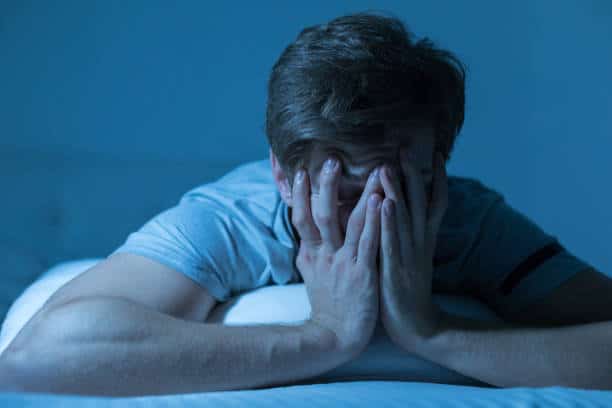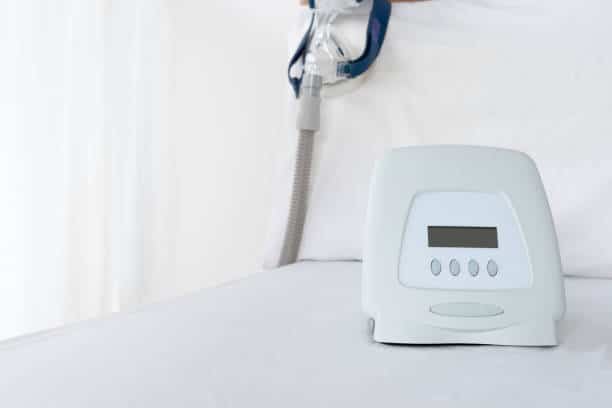Sleep apnea, A sleep disorder that causes individuals to breathe less or stop breathing altogether while asleep. These frequent breathing pauses might impair sleep quality and lead to significant health issues. CPAP therapy often eliminates health problems, but the condition may be fatal if ignored.
People with severe sleep apnea may better understand their sleep condition and how to collaborate with their doctor to get the best care by learning about sleep apnea, its possible implications on health, and the advantages of therapy.
Is Sleep Apnea Dangerous?

Sleep apnea, a common sleep disorder, can be dangerous and should not be overlooked. When left untreated, it can have severe physical and mental health consequences. One of the primary risks associated with sleep apnea is daytime fatigue, which can impair daily functioning and increase the risk of accidents, particularly while driving or operating machinery.
Moreover, sleep apnea has been linked to various cardiovascular problems, including hypertension, heart disease, and stroke. The interrupted breathing during sleep places added stress on the heart and disrupts oxygen flow, leading to potential long-term complications.
Additionally, it can negatively impact cognitive function, mood, and overall quality of life. It has been associated with memory problems, difficulty concentrating, and an increased risk of developing depression and anxiety disorders.
The Connection Between Sleep Apnea and Mortality Risk
The American Academy of Sleep Medicine estimates that millions struggle with this condition, yet many remain undiagnosed.
Obstructive sleep apnea patients often experience symptoms such as loud snoring, daytime fatigue, and sudden awakenings accompanied by gasping or choking. Central sleep apnea, another disorder, is less common but equally dangerous. It occurs when the brain fails to send appropriate signals to control breathing during sleep.
Continuous Positive Airway Pressure (CPAP) and Bilevel Positive Airway Pressure (BiPAP) are common sleep apnea treatments, as sleep specialists recommend. These devices help to prevent episodes by maintaining steady air pressure in the breathing passages, thus reducing the risk of sudden death.
Risk factors for this type of sleep disorder include obesity, smoking, and certain medical conditions like diabetes, which can lead to uncontrolled blood sugar levels. Lifestyle modifications such as losing weight, quitting smoking, and treating sleep apnea with the help of sleep medicine can significantly reduce these risks.
Understanding that untreated obstructive sleep apnea can lead to life-threatening health problems, including heart failure and cardiovascular disease, is critical.
The Risks of Ignoring Obstructive Sleep Apnea

Ignoring obstructive sleep apnea, whether mild or severe, can lead to numerous health problems. The National Library of Medicine emphasizes the dangers of untreated sleep apnea, highlighting the increased risk of accidents due to sleep deprivation. People with this type of sleep disorder often experience excessive daytime sleepiness, leading to falling asleep at inappropriate times, such as while driving.
Accidents Due To Sleep Deprivation
Daytime fatigue is a common symptom in people with sleep apnea, significantly contributes to the risk of accidents. Lack of quality sleep due to frequent interruptions can affect concentration and reaction time, increasing the likelihood of accidents at work or on the road.
Heart-Related Complications
Heart-related complications are a significant concern with untreated obstructive sleep apnea. The condition can lead to high blood pressure, heart disease, and sudden cardiac death. These risks are due to the drop in blood oxygen levels during apnea episodes, causing stress on the cardiovascular system.
The Intersection Of Type 2 Diabetes
Sleep apnea and type 2 diabetes often coexist, affecting blood sugar control, leading to insulin resistance. This relationship further increases health risks for individuals suffering from both conditions.
Also Read: The Connection Between Sleep Apnea and Type 2 Diabetes
Post-Surgical Complications Linked To Sleep Apnea
Post-surgical complications are also higher in sleep apnea patients. The condition can affect the body’s response to sedative medications and disrupt normal respiratory function, leading to complications such as low blood oxygen or heart failure.
Liver Diseases
Studies have shown a connection between OSA and liver diseases. Uncontrolled sleep apnea can exacerbate conditions like fatty liver disease and even accelerate the progression of liver damage.
Is Death During Sleep A Possibility With Obstructive Sleep Apnea?
A frequently asked question is, “Can you die from sleep apnea during sleep?” The answer, while unsettling, is yes – If untreated, mild and severe forms of this sleep disorder can lead to serious complications, including high blood pressure, heart disease, and even sudden cardiac death.
OSA causes breathing to repeatedly stop and start during sleep due to a blocked airway. These pauses in breathing can last from a few seconds to over a minute, leading to lower oxygen levels in the blood. This can put immense stress on the heart and other vital organs, potentially leading to life-threatening conditions such as sudden cardiac death or heart failure.
While death during sleep from sleep apnea is relatively rare, it underscores the severe risk posed by the disorder. If you or a loved one snores loudly, experiences excessive daytime sleepiness, or exhibits other signs of sleep apnea, it’s crucial to seek medical advice from a sleep specialist. Practical strategies to treat this kind of sleep disorder, such as Continuous Positive Airway Pressure (CPAP) or Bilevel Positive Airway Pressure (BiPAP), can help manage the condition and significantly reduce the associated risks.
How Effective Treatments Can Mitigate The Risks Of Sleep Apnea

CPAP is a standard and highly effective treatment for sleep apnea. This device delivers constant air pressure through a CPAP mask while the patient sleeps, ensuring the airway remains open. Regular use of a CPAP machine can significantly reduce symptoms such as loud snoring and daytime fatigue and decrease the risk of high blood pressure, heart disease, and sudden cardiac death.
Bilevel Positive Airway Pressure (BiPAP) is another treatment option, particularly for individuals with difficulty tolerating CPAP. BiPAP provides two different air pressure levels, higher for inhalation and lower for exhalation, making it easier for some patients to use.
Lifestyle changes may be sufficient for those with mild sleep apnea to manage the condition. Losing weight, quitting smoking, and limiting alcohol can significantly improve the symptoms. Regular exercise and a healthy diet can also help control blood sugar levels and reduce the risk of type 2 diabetes.
Recognizing The Indicators Of Sleep Apnea
Common signs include:
- Loud Snoring
- Episodes Of Stopped Breathing During Sleep
- Gasping For Air During Sleep
- Awakening With A Dry Mouth
- Morning Headache
- Difficulty Staying Asleep
- Excessive Daytime Sleepiness
- Difficulty Paying Attention While Awake
- Irritability.
These symptoms can vary between individuals and different types of sleep apnea – obstructive and central.
Managing Sleep Apnea: Lifestyle Changes and Therapies
Managing sleep apnea often involves a combination of lifestyle changes and therapies. Lifestyle modifications can include losing weight if overweight, quitting smoking, avoiding alcohol and certain medications, and regular exercise. Side sleeping or using special pillows or devices to open the airway can also help.
Therapies for this kind of sleep disorder include CPAP and BiPAP, which involve wearing a mask over your nose and/or mouth while you sleep. The mask is connected to a machine delivering continuous airflow into the nose.
When to Consult a Healthcare Provider
It’s crucial to consult a healthcare provider if you or a loved one has signs or symptoms of sleep apnea. Don’t ignore snoring if you experience excessive daytime sleepiness, if your snoring is loud enough to disturb your or a bed partner’s sleep, or if you stop breathing during sleep. Early diagnosis and treatment can prevent or reverse the potentially severe consequences of this common and treatable disorder.
Discover our curated selection of CPAP accessories on our Amazon store to enhance your sleep therapy experience, ensuring comfort and effectiveness in your treatment.




